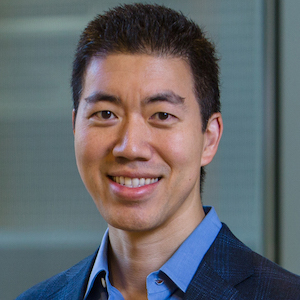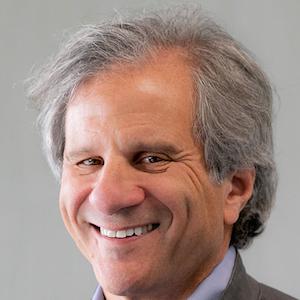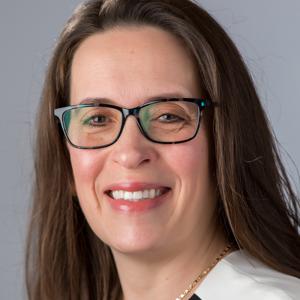Session Abstract – PMWC 2025 Silicon Valley
Track Chair: Maryland Franklin, Labcorp
- Cross-Application of Oncology Drugs in Rare Diseases
- Razelle Kurzrock, Medical College of Wisconsin
- PMWC 2025 Award Ceremony
Luminary Honoree: David R. Liu, Broad Institute & Crystal Mackal, Stanford University
Pioneer Honoree: Drew Weissman, Penn Medicine
- Breakthroughs in Cancer Immunotherapy: mRNA Vaccines and CAR T-Cell Advances (PANEL)
Chair: Ira Mellman, Medici Therapeutics
- Drew Weissman, Penn Medicine
- Crystal Mackal, Stanford University - Next-Generation ADCs: Challenges and Innovations in Immunotherapy Combinations (PANEL)
Chair: Sandhya Girish, Gilead
- Bin Liu, UCSF
- Hanspeter Gerber, Sutro Bioscience
- Amrita Kamath, Genentech
- Stephen Eck, MacroGenics - Strategic IP Management in Cell and Gene Therapy: Navigating Legal and Practical Challenges
- Janet Xiao, Morrison & Foerster LLP
- Keynote: Base Editing, Prime Editing, and Targeted Gene Integration: Precision Therapeutic Genome Editingn
- David R. Liu, Broad Institute
- Advances in Allogeneic Cell Therapies: Overcoming Hurdles and Expanding Applications (PANEL)
Chair: Elliot Norry, Adaptimmune
- Larry Lamb, IN8bio
- Indu Ramachandran, Century Therapeutics - Bottlenecks in Manufacturing of Cell Therapies
- Fabian Gerlinghaus, Cellares
- Transforming Cancer Treatment: Stem Cell and Gene Therapy Breakthroughs
Chair: Catriona Jamieson, UCSD Health
- Irv Weisman, Stanford
- Collaborations Advancing Genetics-based Diagnostic Testing for Cell and Gene Therapy
Chair: Maryland Franklin, Labcorp
- Data-Driven Innovations in Oncology Cell Therapy Trials
- Prabhu Snehit, Stanford
- Advancements and Future Directions in Therapeutic Ultrasound for Precision Medicine
Chair: Masha Stromme, EXACT Therapeutics
- John de Groot, UCSF
- Bhaskar Ramamurthy, Cordance Medical
- Raag Airan, Stanford
Speaker Profile
Biography
Maryland Franklin is Vice President and Enterprise Head of Cell and Gene Therapy (C>) for Labcorp where she is responsible for development, alignment, and pursuit of the C> strategic vision. Maryland joined Labcorp in 2019 through the acquisition of a preclinical oncology CRO where she established and led a group of scientists who advanced customer success through science, business, operations, and marketing collaboration. Maryland was a crucial member of the leadership team supporting the acquisition by Labcorp.
Prior to moving into the CRO industry in 2014, Maryland had over 15 years’ experience in biotech and pharma partnering on numerous multi-disciplinary teams delivering therapeutic candidates from Research into Development including a key role in bringing four drugs into Phase 1 clinical trials.
Maryland received her Ph.D. in Medical Genetics from the University of Alabama at Birmingham where she pursued research in cancer gene therapy.
Speaker Profile
Biography
David R. Liu is a leading figure in the field of genome editing and precision medicine. As a core institute member at the Broad Institute of MIT and Harvard, Dr. Liu's groundbreaking research has revolutionized the field of gene editing, paving the way for transformative therapeutic applications.
Dr. Liu is renowned for his pioneering work in developing base editing and prime editing, two innovative techniques that enable precise and efficient modifications of DNA without causing double-stranded breaks. Base editing allows for the direct conversion of one DNA base into another, while prime editing enables the precise substitution, insertion, or deletion of DNA sequences with unprecedented accuracy.
These revolutionary genome editing technologies hold immense promise for treating a wide range of genetic diseases, including rare disorders, cancer, and inherited disorders. Dr. Liu's research has not only advanced our fundamental understanding of genome editing but has also opened up new avenues for personalized medicine and targeted therapy.
In addition to his contributions to genome editing, Dr. Liu has also made significant strides in the evolution of proteins with therapeutic potential using phage-assisted continuous evolution (PACE) and the discovery of bioactive small molecules using DNA-templated organic synthesis and DNA-encoded libraries.
Dr. Liu's exceptional achievements have earned him numerous accolades and awards, including election to the US National Academy of Sciences, the US National Academy of Medicine, and the American Association for the Advancement of Science. In 2022, he was honored with the prestigious King Faisal Prize Laureate in Medicine for his outstanding contributions to the field of precision medicine.
Speaker Profile
Biography
Catriona Jamieson is a leading physician scientist who has specialized in myeloproliferative neoplasms (MPNs) and leukemia. She discovered missplicing, RNA hyperediting, and splice isoform switching as mechanisms governing human cancer stem cell maintenance in selective niches. These discoveries have helped to shed light on the underlying mechanisms of cancer and have opened up new avenues for targeted therapies. Dr. Jamieson's contributions to the field of precision medicine include her pivotal role in the rescue and development of the JAK inhibitor fedratinib for the treatment of myelofibrosis. Additionally, she is known for her unwavering dedication to advancing innovative therapies and her outstanding leadership as the director of the Sanford Stem Cell Institute at UCSD and as a co-founder of Impact Biosciences and Aspera Biomedicines.
Speaker Profile
Biography
Dr. Drew Weissman is a world-renowned physician and researcher at Penn Medicine, where he serves as a Professor of Infectious Diseases at the Perelman School of Medicine. Dr. Weissman joined Penn in 1997 following a fellowship at the National Institutes of Health (NIH), where he studied HIV under the guidance of Dr. Anthony Fauci. His pioneering research in RNA biology, particularly in collaboration with Dr. Katalin Karikó, led to the invention of the modified mRNA technology used in Pfizer-BioNTech and Modernas COVID-19 vaccines. This groundbreaking work, which involved modifying mRNA and developing a lipid nanoparticle delivery method, made mRNA vaccines safe and effective, a breakthrough that was crucial in combating the COVID-19 pandemic. For these contributions, Dr. Weissman was awarded the Nobel Prize in Physiology or Medicine in 2023. Currently, Dr. Weissman's team is developing a pan-coronavirus vaccine to prevent future epidemics, a universal influenza vaccine, and a vaccine to prevent herpes. They are also working on cancer therapeutics using mRNA technology. Dr. Weissman received his bachelors and masters degrees from Brandeis University and earned his MD and PhD from Boston University. He completed his residency at Beth Israel Hospital. His contributions have not only transformed the field of infectious diseases but have also opened new avenues for treating various conditions, including cancer, marking significant advancements in the medical field.
Speaker Profile
Biography
Ira Mellman (FAACR, FAIO) began his career at Yale School of Medicine, serving as Sterling Professor of Cell Biology and Immunobiology, Scientific Director of the Yale Comprehensive Cancer Center, and member of the Ludwig Institute for Cancer Research. A National Academy of Sciences member, he is renowned for discovering endosomes, their role in antigen presentation, and the function of dendritic cells in immunity and vaccine responses, building on his fellowship with Ralph Steinman at The Rockefeller University.
At Genentech/Roche, where he spent 17 years as VP of Research Oncology and Cancer Immunology, Ira established the cancer immunotherapy franchise responsible for Tecentriq® and Lunsumio®. He also led efforts in personalized cancer vaccines (with BioNTech), cell/cytokine therapies, and tumor microenvironment research. He introduced the Cancer Immunity Cycle (Mellman et al., Nature 2011, 2023), now a foundational concept in immune-oncology.
He has served on the boards of the American Cancer Society and the Society for the Immunotherapy of Cancer, receiving their Lloyd J. Old and Richard Smalley Awards. Ira is currently the co-founder and CSO of Medici Therapeutics, a next-generation immunotherapy company.
Aded to jot form
Speaker Profile
Biography
Dr. Drew Weissman is a world-renowned physician and researcher at Penn Medicine. Dr. Weissman joined Penn in 1997 following a fellowship at the National Institutes of Health (NIH), where he studied HIV under the guidance of Dr. Anthony Fauci. His pioneering research in RNA biology, particularly in collaboration with Dr. Katalin Karikó, led to the invention of the modified mRNA technology used in Pfizer-BioNTech and Modernas COVID-19 vaccines. This groundbreaking work, which involved modifying mRNA and developing a lipid nanoparticle delivery method, made mRNA vaccines safe and effective, a breakthrough that was crucial in combating the COVID-19 pandemic. Dr. Weissman was awarded the Nobel Prize in Physiology or Medicine in 2023.Currently, Dr. Weissman's team is developing a pan-coronavirus vaccine, a universal influenza vaccine, and vaccines to prevent HIV, hepatitis C, and malaria. They are also working on cancer therapeutics using mRNA technology and targeting the delivery of LNPs for gene therapy and therapeutics.
Speaker Profile
PMWC LUMINARY AWARD
Developed advancements in CAR T-cell therapy, including innovative clinical trials and improved treatment protocols that have significantly enhanced patient outcomes in pediatric oncology
M.D., Ernest and Amelia Gallo Family Professor, Founding Director Stanford Center for Cancer Cell Therapy, Stanford
Biography
Crystal Mackall is the Ernest and Amelia Gallo Family Professor of Pediatrics and Medicine at Stanford University, the Founding Director of the Stanford Center for Cancer Cell Therapy, and Director of the Parker Institute for Cancer Immunotherapy Stanford. During a 27-year tenure at NCI and since 2016 at Stanford, she has led an internationally recognized translational research program focused on immune-oncology. Her work has advanced understanding of fundamental immunology and translated this understanding for the treatment of human disease with a major focus on childrens cancers. Her group advanced understanding of T cell exhaustion and developed approaches to prevent or reverse the phenomena, identified major mechanisms of resistance to CAR T cell therapies and has conducted trials with very promising results in CAR19 refractory diseases and brain tumors. She is a Member of the National Academy of Medicine, the Academy of Immuno-oncology and AACR, and is the recipient of numerous awards.
Talk
Progress in delivering cell based therapies capable of previously untreatable cancers continues to advance at a remarkable pace. This presentation will summarize current state of the field and promise for the future of this novel therapeutic class.
Speaker Profile
Biography
Dr. Sandhya Girish is the Vice President of Clinical Pharmacology Sciences at Gilead Sciences, Inc. Dr. Girish provides strategic and scientific leadership for clinical pharmacology, pharmacometrics and bioanalytical strategies for NMEs spanning both early and late stages of development. Her department is actively involved in a variety of pediatric and adult RD programs across virology, oncology, and inflammation therapeutics areas and is responsible for integrated clinical pharmacology, and MS strategies, including applying MIDD approaches where appropriate. Sandhya has organized technical sessions, workshops and roundtable discussions on therapeutic protein drug interactions, ADCsTDCs, Novel Combinations, Organ Impairment, FIH dosing etc. With support from her team Dr. Girish has successfully led and supported numerous submissions, including but not limited to Herceptin, Perjeta, Kadcyla, TECENTRIQ, POLIVY, Trodelvy, Sunlenca, etc. Sandhya is passionate about combining insights from clinical trials with data from virtual clinical trials, RWD, AIML to accelerate drug development.
Speaker Profile
Biography
Janet focuses on worldwide patent procurement, patent portfolio management, and strategic planning for life sciences companies. Her clients range from large multinational biopharmaceutical companies, such as Celgene and Genentech, to emerging startup companies around the world. She advises her clients on patent matters relating to various technologies, including antibody therapeutics, cell therapeutics, nanomedicine, gene therapy, drug delivery systems, diagnostics, and nutraceuticals. Janet works extensively in performing IP due diligence reviews in the contexts of VC investments, technology transactions, mergers and acquisitions, and marketing and manufacturing clearance for biopharmaceutical products. She is noted for her in depth knowledge of patent landscapes in the fields of cancer immunotherapy, gene editing, next generation sequencing, liquid biopsy, antibody manufacturing, and medical devices.
Speaker Profile
Biography
Dr. Elliot Norry has served as Chief Medical Officer of Adaptimmune since January 2020 and he is a member of the Executive Team. Previously, Dr. Norry was Vice President of Clinical Safety in Pharmacovigilance at Adaptimmune, and leader of their ADP- A2AFP program. Prior to joining Adaptimmune, Dr. Norry served as Safety Development Leader at GSK, where he managed clinical safety for a broad range of early and late-stage products, including improvement activities for pazopanib for the treatment of soft tissue sarcoma. He was also chair of GSKs Hepatic Safety Panel. Prior to his roles in the biotech and pharmaceutical industry, Dr. Norry practiced adult internal medicine at Abington Memorial Hospital in Abington, Pennsylvania. He holds a B.A. from Columbia College and an M.D. from New York University. He performed his residency in Internal Medicine at Temple University Hospital in Philadelphia and his fellowships in gastroenterology at Thomas Jefferson University Hospital in Philadelphia.
Speaker Profile
Biography
1988-1992, Dr. Weissman and colleagues isolated the first blood-forming stem cells in mice and humans and successfully isolated human Leukemia cancer stem cells in 2000. His laboratories also discovered the human HSC, a human brain-forming stem cell population, mouse skeletal muscle stem cells, and an osteochondral stem cell in mice. His work and discoveries on stem cell aging contributed to the understanding of cancer stem cells and the immune system and are pioneering achievements with far-reaching clinical applications. Recently, Dr. Weissman and his colleagues identified a protein, CD47, that is highly expressed during the late stages of cancer stem cell progression and is currently being studied as a potential cancer therapeutic. Dr. Weissman, a proven leader in the field of cancer stem cell biology, founded three companies focused on bringing stem cell therapies into the clinic. He was also on the founding Scientific Advisory boards of companies Amgen, DNAX, and T Cell Sciences.
Speaker Profile
Biography
Dr. Lawrence Lamb leads scientific and translational strategy for novel gamma delta T cell therapy initiatives. His initial training in inflammatory lung disease and macrophage function was followed by postdoctoral fellowships in molecular evolution and transplantation immunology at the South Carolina Cancer Center. He was the first to describe the association between relapse-free survival and homeostatic gamma delta T cell recovery in high-risk leukemia patients. As an Associate Professor and later Professor of Medicine at the University of Alabama at Birmingham, Dr. Lamb developed the scientific support for chemotherapy resistant gamma delta T cell-based immunotherapy for high-grade brain tumors. Over the course of his career, Dr. Lambs work has been funded by the NCI, NHLBI, NCRR, NINDS, American Red Cross, Childrens Oncology Group, the Elsa Pardee Foundation, the Leukemia and Lymphoma Society, and the National Brain Tumor Foundation's Samuel Gerson chair for glioblastoma research.
Speaker Profile
Biography
Dr. Kurzrock is a boardcertified medical oncologist and a renowned expert in precision medicine. She developed one of the worlds largest Phase I clinical trial programs while at MD Anderson Cancer Center. Dr. Kurzrock also founded the UCSDs Center for Personalized Cancer Therapy, focusing on genomicallydriven therapy as well as precision immunotherapy, especially in rare cancers. Dr. Kurzrock brought the first transcriptomic study to the clinic in an international setting spanning five countries (WINTHER), as well as the first Nof1 study of individually customized combination therapy (IPREDICT). Dr. Kurzrock received her MD from the University of Toronto, Canada. She has 900 PubMed publications, an Hindex of 140, has been named to the lists of most highly cited scientists in the world. She has a uniquely strong record of competitive funding with 100 million dollars in lifetime funding, and has overseen early development of multiple drugs that are now FDA approved.
Speaker Profile
Biography
Dr. Ramachandran is translational medicine leader with experience in developing autologous and allogeneic cell therapy products for oncology and autoimmune indications.
Speaker Profile
Biography
Dr. de Groot's broad clinical and laboratory experience enables effective translation of novel therapies into the clinic for the treatment of patients with primary brain tumors. He has significantly contributed to the clinical development of antiangiogenic, molecularly targeted and immunotherapy treatments for glioblastoma and regularly advise companies on such agents in development. He has been the PI of over 40 clinical trials and collaborator on over 80 other studies He is developing next generation trials using novel drug combinations and interventional techniques including blood brain disruption using laser ablation and focused ultrasound.
Speaker Profile
Biography
Dr. Masha Stromme is a scientist, investor and entrepreneur within precision medicine with a focus on genetics and neuroscience. Her current portfolio of companies includes Exact-Tx, a company spun out of GE Healthcare that uses ultrasound technology for targeted drug delivery, Atropos Health, a spin-off of Stanford, focused on making real-world evidence available to clinicians and biopharmas, and ALS-focused GenieUs Genomics and Perron Institute, patient-centric approaches leveraging cutting-edge genomics and gene modulation technologies to advance ALS diagnostics and therapeutics. Mashas early research focused on the molecular mechanisms underlying mitochondrial dysfunction in the developing and the degenerating brain. She transitioned in the late '90s from a scientific career to investment banking, working with Morgan Stanley, Altium Capital and Arctic Securities. In the last 10 years, Masha has leveraged her scientific and investment banking expertise to drive success in early stage investing and building companies based on novel precision health technologies.
Speaker Profile
Biography
Maryland Franklin is Vice President and Enterprise Head of Cell and Gene Therapy (CGT) for Labcorp where she is responsible for development, alignment, and pursuit of the CGT strategic vision. Maryland joined Labcorp in 2019 through the acquisition of a preclinical oncology CRO where she established and led a group of scientists who advanced customer success through science, business, operations, and marketing collaboration. Maryland was a crucial member of the leadership team supporting the acquisition by Labcorp.Prior to moving into the CRO industry in 2014, Maryland had over 15 years experience in biotech and pharma partnering on numerous multi-disciplinary teams delivering therapeutic candidates from Research into Development including a key role in bringing four drugs into Phase 1 clinical trials.Maryland received her Ph.D. in Medical Genetics from the University of Alabama at Birmingham where she pursued research in cancer gene therapy.
Speaker Profile
Biography
Dr. Liu is globally recognized for his research in antibody-based cancer target discovery and therapeutic development. His groundbreaking work in prostate cancer and multiple myeloma led to the founding of Fortis Therapeutics, a biopharmaceutical company focused on novel cancer therapies. The Liu lab identifies novel antigens and epitopes through a unique, non-gene expression-based approach and develops therapeutics using human monoclonal and multi-specific antibodies. Dr. Liu has successfully translated several laboratory discoveries into clinical trials. Notably, he identified CD46 as a novel, lineage-independent antigen in prostate cancer, developed a human monoclonal antibody that binds to a tumor-selective epitope on CD46, and created an antibody-drug conjugate (ADC) now in three clinical trials. In his study on mesothelioma, ovarian, and pancreatic cancers, he also identified ALPPL2ALPG, a genuinely tumor-specific cell surface antigen, and developed ALPPL2-targeted ADC and T cell redirection therapies, which have been licensed to biotech companies for clinical development.
Speaker Profile
Biography
Dr. Masha Stromme is a scientist, investor and entrepreneur within precision medicine with a focus on genetics and neuroscience. Her current portfolio of companies includes Exact-Tx, a company spun out of GE Healthcare that uses ultrasound technology for targeted drug delivery, Atropos Health, a spin-off of Stanford, focused on making real-world evidence available to clinicians and biopharmas, and ALS-focused GenieUs Genomics and Perron Institute, patient-centric approaches leveraging cutting-edge genomics and gene modulation technologies to advance ALS diagnostics and therapeutics. Mashas early research focused on the molecular mechanisms underlying mitochondrial dysfunction in the developing and the degenerating brain. She transitioned in the late '90s from a scientific career to investment banking, working with Morgan Stanley, Altium Capital and Arctic Securities. In the last 10 years, Masha has leveraged her scientific and investment banking expertise to drive success in early stage investing and building companies based on novel precision health technologies.
Speaker Profile
Biography
Speaker Profile
Biography
Fabian is driven by a strong sense of purpose and is passionate about building the future of cell therapy manufacturing. With 10+ years of experience as an innovator and a leader, Fabian has established a track record of assembling top-performing teams to successfully drive novel bioprocessing technologies from ideation to commercial readiness. Prior to co-founding Cellares, Fabian served as Chief Innovation Officer at Synthego, where he co-invented the companys proprietary RNA synthesizer technology and helped grow the company from five to more than 230 employees. He earned a masters degree in aerospace engineering from the Technical University of Munich, and an honors degree in technology management from the Center for Digital Technology and Management, Munich.
Speaker Profile
Biography
Hans-Peter Gerber is a seasoned executive with over 25 years of experience in oncology drug development, including antibody-drug conjugates (ADCs), redirected T-cell targeting compounds (bispecifics), and adoptive T-cell therapies (TCR-T and CAR-T cells). He has built and led highly successful drug development teams in pharma, biotech, and startup companies and oversaw the preclinical development of therapeutic programs in oncology, from target identification to IND filings.
Speaker Profile
Biography
Snehit Prabhu oversees data science, including bioinformatics and biostatistics, for cancer cell therapy at Stanford. His team has supported over a dozen clinical trials and 2 multi-center consortia, managing data from 1,500+ cell therapy recipients, across both adult and pediatric settings. Under his leadership, Stanford has built several first-in-class, novel data platforms and service lines to integrate and analyze patient data in real-time from multiple organizations. .
Talk
Redefining Data Infrastructure at Health Systems Administering Next-Gen Therapies
Next-generation medicines (like cell therapies) create large, complex data footprints for the health system. Each patient journey generates multi-modal, multi-scale and multi-organizational datasets, that dwarf every other treatment modality. We will share our experience building and scaling an AI-assisted, real-time data platform to stream patient data and supercharge the cell therapy innovation flywheel at Stanford.
Speaker Profile
Biography
Amrita V. Kamath, PhD, MBA, is Vice President and Head of the Translational PKPD department at Genentech. Her department is accountable for providing nonclinical, translational and investigative PKPD guidance for Genentechs large molecule therapeutics (including antibodies, bispecifics, antibody-drug conjugates, peptides, vaccines, cell and gene therapies) from early-stage research through approval. Prior to joining Genentech in 2006, she was at Bristol-Myers Squibb in the Metabolism and Pharmacokinetics department working on small molecule therapeutics. She received her B.Pharm from the University of Bombay, followed by a PhD in Pharmaceutics from the State University of New York at Buffalo, and a MBA from Rutgers University. During her 25 years in the industry, she has played a key role in advancing several molecules from discovery into clinical development in several therapeutic areas by applying PKPD principles in guiding molecule selection, characterization, and prediction of human PK and clinical efficacious doses.
Speaker Profile
Biography
Bhaskar Ramamurthy is an expert in designing and developing medical devices, especially ultrasound medical devices, optical devices, and robotics devices. He has over 40-50 patentspatent applications to his name. He has worked for small and large multinational companies, rising from entry-level engineer to Director, Vice-President, Chief Technical Officer, and now founder and Chief Executive Officer. Bhaskars expertise includes medical device project management, program management, and risk management, including identification and mitigation, conducting preclinical and clinical studies, and developing robust development and implementation strategies. He is also an expert in developing intellectual property and patenting strategies.




















































